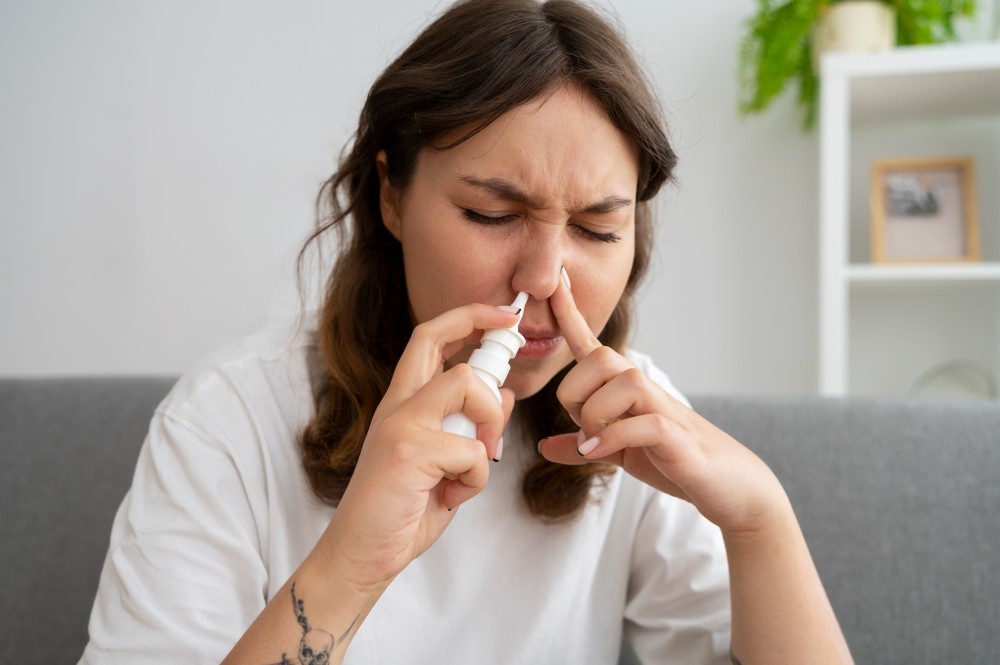Sinus infections, medically known as sinusitis, can be a disruptive and painful condition affecting millions of people worldwide. Characterized by inflammation and swelling in the sinuses, sinus infections can lead to blocked nasal passages, headaches, and overall discomfort. Understanding the sinus infection symptoms, available treatments, and natural remedies can help you find effective relief and prevent recurring episodes.

Understanding Sinus Infections
A sinus infection occurs when the nasal cavities become inflamed due to bacteria, viruses, or sometimes fungi. Common symptoms of sinus infection include nasal congestion, facial pain or pressure, thick nasal discharge, and fatigue. Patients may also experience fever, a reduced sense of smell, and sore throat. One of the most common complaints is a sinuses infection headache, which can feel intense due to pressure buildup in the frontal or maxillary sinuses. Recognizing the signs of a sinus infection early can help in seeking timely medical intervention.
Medical Treatments for Sinus Infection Relief
Medical approaches to sinus infection relief typically depend on the severity and cause of the infection. For bacterial sinus infections, doctors may prescribe antibiotics. The best antibiotic for sinus infection often depends on individual cases and the specific bacteria involved, but common choices include amoxicillin, doxycycline, and certain macrolides. It’s important to complete the full course of antibiotics as prescribed to avoid recurrent infections or antibiotic resistance.
For viral sinus infections, antibiotics are ineffective. Instead, treatment focuses on symptom management through decongestants, saline nasal sprays, antihistamines, and pain relievers. Over-the-counter pain medications such as ibuprofen or acetaminophen can help relieve the sinuses infection, headache and facial discomfort.
In some chronic or severe cases, a healthcare provider may recommend more advanced interventions such as corticosteroid nasal sprays, allergy treatments, or even sinus surgery. Consulting with an ENT specialist can help determine the most effective sinus infection treatment plan for persistent or recurrent infections.
Natural Remedies for Sinus Infection Relief
In addition to medical treatment, several natural remedies can provide relief from sinus infection symptoms. While they may not cure bacterial infections, these remedies can ease congestion, reduce inflammation, and promote faster recovery.
- Steam Inhalation: Inhaling steam from hot water can help loosen mucus and open blocked nasal passages. Adding essential oils such as eucalyptus or peppermint may enhance relief.
- Saline Nasal Irrigation: Rinsing the nasal passages with a saline solution or neti pot can flush out mucus, allergens, and irritants, helping to alleviate nasal congestion and reduce the risk of secondary infections.
- Hydration: Drinking plenty of fluids helps thin mucus, promoting drainage and easing pressure in the sinuses. Warm liquids like herbal teas or broths can be particularly soothing.
- Rest and Sleep: Adequate rest allows your body’s immune system to function optimally, speeding up recovery from infection.
- Warm Compresses: Applying a warm compress to the face can relieve pressure and reduce the severity of a sinuses infection headache.
- Humidifiers: Using a humidifier adds moisture to the air, preventing dryness in the nasal passages and sinuses, which can exacerbate discomfort.
While these natural solutions can help manage symptoms, they should complement, not replace, prescribed medical treatment when an infection is bacterial or severe.
Preventing Sinus Infections
Preventing sinus infections involves a combination of lifestyle adjustments and hygiene practices. Frequent handwashing, avoiding close contact with sick individuals, and managing allergies can reduce the risk of developing sinus infections. Additionally, staying hydrated, using humidifiers, and maintaining good nasal hygiene with saline rinses can help keep sinuses clear.
When to Seek Medical Attention
While mild sinus infections often resolve within a week or two, certain situations require professional care. Seek medical attention if you experience:
- Severe sinus infection symptoms lasting more than 10 days
- High fever
- Vision changes or swelling around the eyes
- Recurrent sinus infections
- Severe sinuses infection headache not relieved by over-the-counter pain medications
Prompt treatment can prevent complications such as chronic sinusitis or the spread of infection to other areas.
Sinus infections can be uncomfortable, but understanding the symptoms of sinus infection, exploring both medical and natural solutions, and seeking timely treatment can significantly improve your quality of life. Whether using antibiotics, symptom management, or natural remedies, taking proactive measures is key to effective sinus infection relief.
Frequently Asked Questions (FAQs)
Q1: What are the most common symptoms of sinus infection?
A: Common symptoms include nasal congestion, facial pain or pressure, thick nasal discharge, headache, fever, and fatigue.
Q2: How long does a sinus infection typically last?
A: Viral sinus infections usually resolve within 7–10 days, while bacterial infections may last longer and require antibiotics.
Q3: Can sinus infections cause headaches?
A: Yes, sinuses infection headache is a common symptom due to pressure buildup in the sinus cavities.
Q4: What is the best antibiotic for sinus infection?
A: The choice depends on the individual case, but common antibiotics include amoxicillin, doxycycline, or macrolides. Always consult a doctor before taking antibiotics.
Q5: Are natural remedies effective for sinus infections?
A: Natural remedies like steam inhalation, saline rinses, hydration, and rest can alleviate symptoms and support recovery, but they may not cure bacterial infections.
Get lasting relief from sinus infections! Visit our website https://sccodessa.com/services/allergy/ or call us at +1 (432) 322-8675 now to schedule your consultation with our care team.
